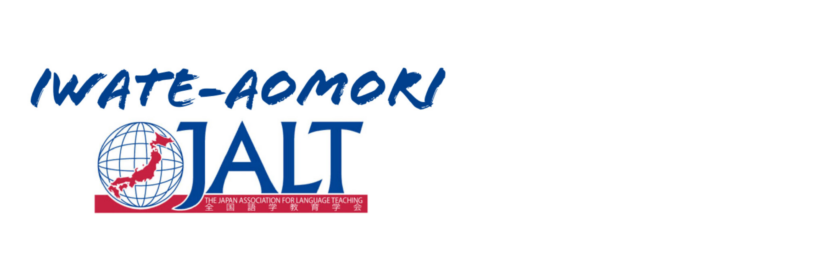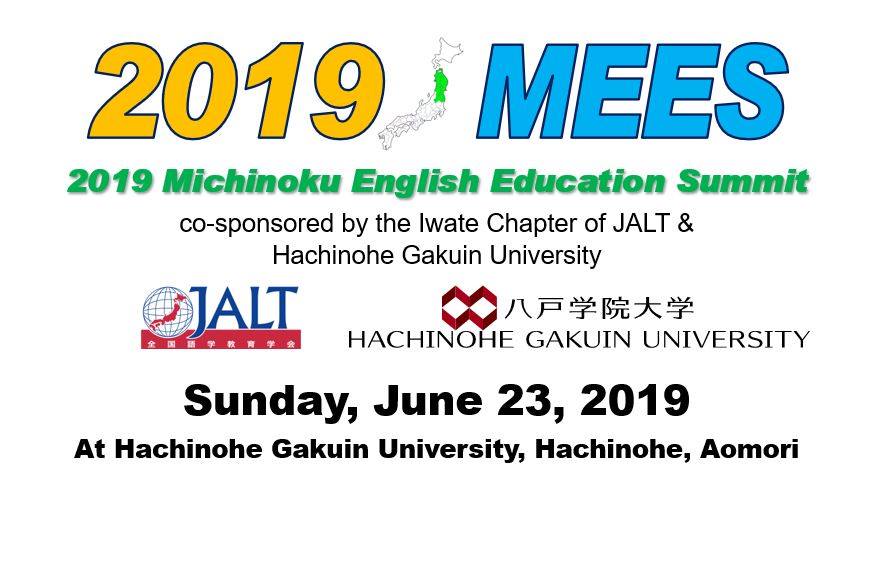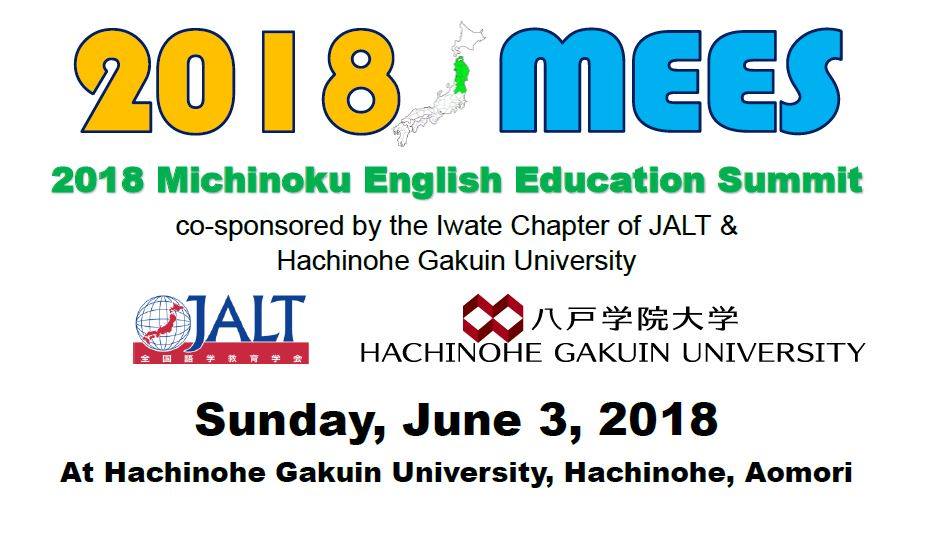TILES2021 Call for Proposals
Date: Sunday, September 26
Time: 13:30 – 17:00
Place: Hirosaki Gakuin University & Online
Submission Materials:
(1) Abstract: 100-200 words describing your intended presentation (in English or Japanese).
(2) Presenter Bio: Up to 100 words describing yourself and your current teaching situation (in English or Japanese). Submit to Vikki Williams: w_vikki@auhw.ac.jpSubmission Deadline: Friday, July 16Presentations should be between 20 – 30 minutes, followed by a 10-minute Q & A session.
We welcome presentations in either English or Japanese; however, it would be appreciated if important information was available in both languages.
Presentations should include one or some of the following:
• Describe the presenter’s own research.
• Describe the presenter’s own classroom experience.
• Give practical examples or ideas for classroom use.
TILES2021
発表者募集日日:9月26日(日)
時間:13:30~17:00
場所:弘前学院大学およびオンライン
提出書類:
(1) 概要:発表予定の内容について、英語100-200語。日本語300-400字。
(2) 発表者のバイオグラフィー :発表者自身と発表者の現在の教育活動状況について、英語100語以内。日本語200字以内。提出先:ウイリアムズ・ヴィッキー(w_vikki@auhw.ac.jp)
提出締切:7月16日(金)
発表時間:20-30分(+質疑応答10分間)
英語と日本語いずれかによる発表でかまいませんが、重要な内容は両言語で伝わるようにしていただければ幸いです。
発表の内容に以下のことを含めてもらえれば幸いです:
• 発表者の研究について
• 発表者の教育現場での経験について
• 教室で使える実践的なことについて


